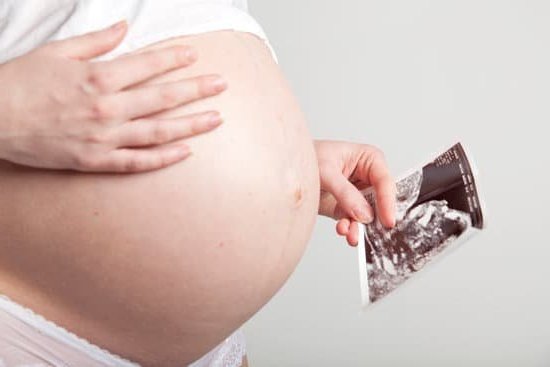Are you experiencing unusual changes in your body but have not missed your period yet? It could be early signs of pregnancy before missed period. Understanding these signs can help you recognize and manage the symptoms that come with the early stages of pregnancy.
The early signs of pregnancy before a missed period can vary from woman to woman, and they may manifest differently in each individual. Some common indicators include changes in the menstrual cycle, sensitive breasts and nipples, fatigue, nausea, morning sickness, heightened sense of smell, frequent urination, and cravings and aversions.
As we delve into these early signs of pregnancy, it’s important to note that while these symptoms may indeed indicate pregnancy, they can also be caused by other factors such as hormonal fluctuations or health issues. It’s always best to consult a healthcare professional for accurate diagnosis and proper medical guidance. Let’s explore the various early signs of pregnancy before a missed period and gain a better understanding of what women may experience during this crucial time.
Changes in Menstrual Cycle
One of the earliest signs of pregnancy before a missed period is changes in your menstrual cycle. It’s important to understand your normal menstrual cycle so you can recognize any changes that may indicate pregnancy. One common early sign of pregnancy is implantation bleeding, which occurs when the fertilized egg attaches to the lining of the uterus. This light spotting may occur around the time of your expected period and is often mistaken for a light period.
Another indicator of pregnancy before a missed period is a missed or late period. If you have a regular menstrual cycle and suddenly miss a period, it could be a sign that you are pregnant. However, it’s also important to note that other factors such as stress or hormonal imbalances can also cause changes in your menstrual cycle.
In addition to changes in your menstrual cycle, other early signs of pregnancy before a missed period include symptoms such as nausea, fatigue, and breast tenderness. These symptoms can vary from woman to woman, and some women may experience only a few while others experience many.
If you are trying to conceive or suspect that you might be pregnant, it’s important to pay attention to these early signs and consider taking a pregnancy test if you believe you may be pregnant.
Sensitive Breasts and Nipples
During the early stages of pregnancy, many women experience changes in their breasts and nipples. These changes can be one of the first signs that a woman may be pregnant, even before a missed period. Understanding and recognizing these early signs is important for those who are trying to conceive or think they may be pregnant.
Changes in Size and Sensitivity
One of the most noticeable early signs of pregnancy before a missed period is sensitivity in the breasts and nipples. Many women report that their breasts feel more tender or sore than usual, and that their nipples may become more sensitive as well. Some women also notice an increase in breast size during this time. These changes occur due to hormonal fluctuations as the body prepares for potential pregnancy.
Understanding Hormonal Changes
The hormonal changes that occur during early pregnancy can have a significant impact on the breasts and nipples. The increase in hormones such as estrogen and progesterone can lead to increased blood flow to the breasts, causing them to feel more sensitive. It is important for women to understand that these changes are normal and often indicate that the body is preparing for pregnancy.
Seeking Support
For women who suspect they may be experiencing early signs of pregnancy before a missed period, it is important to seek support from healthcare professionals or trusted individuals. Understanding these early signs and seeking guidance can help alleviate any concerns or uncertainties during this time. Healthcare providers can offer advice on managing discomfort and provide information about the next steps for confirming a pregnancy.
Fatigue
During the early stages of pregnancy, many women experience fatigue as one of the earliest signs of pregnancy before missed period. This can be attributed to the hormonal changes that occur in the body as it prepares for the growth and development of the fetus. The increase in progesterone levels can lead to feelings of tiredness and lethargy, making it challenging for women to carry out their daily activities.
Here are some common effects of hormonal changes on energy levels during early pregnancy:
- Increased production of progesterone: Progesterone levels rise significantly during early pregnancy, leading to drowsiness and fatigue.
- Changes in metabolism: The body’s metabolism undergoes changes as it adapts to support the growing embryo, which can also contribute to feelings of tiredness.
- Emotional stress: The anticipation and emotional rollercoaster that comes with discovering a potential pregnancy can also lead to increased fatigue and exhaustion.
It is important for women experiencing these symptoms to listen to their bodies and rest when needed. Getting plenty of sleep, staying hydrated, and engaging in light exercise can help alleviate feelings of fatigue during this time.
It is also advisable for pregnant women to consult with their healthcare provider if they experience excessive or prolonged fatigue, as it could be a sign of an underlying health issue. Recognizing and understanding these early signs can help women navigate through the initial stages of pregnancy more effectively.
Nausea and Morning Sickness
Some women may start to experience nausea as early as 2 weeks after conception, while for others, it may begin around the 6-week mark. This sensation of queasiness can occur at any time of the day, not just in the morning, and may be triggered by certain smells or foods. While not all pregnant women experience morning sickness, it is considered a classic sign of early pregnancy.
Dealing with nausea and morning sickness can be challenging, but there are some strategies that may help alleviate these symptoms. Keeping crackers or dry toast by the bed to nibble on before getting up in the morning, eating small, frequent meals throughout the day, and staying hydrated can help alleviate these symptoms. Some women also find relief from ginger tea or sucking on ginger candies.
It’s important to remember that every woman’s experience with nausea and morning sickness is different, so finding what works best for you is essential. Early signs of pregnancy before missed period should prompt a conversation with a healthcare provider to confirm pregnancy and discuss potential next steps in prenatal care planning.
Heightened Sense of Smell
A heightened sense of smell is one of the early signs of pregnancy before a missed period. Many women report that during the early stages of pregnancy, they experience a heightened ability to detect certain odors or find that smells they used to enjoy now cause them discomfort. This can be attributed to the surge in hormonal levels during pregnancy, particularly the hormone estrogen, which plays a crucial role in the sense of smell.
The increase in estrogen levels can lead to an increased sensitivity to certain smells, such as perfumes, cooking odors, or even the natural scent of a partner. This heightened sense of smell can sometimes trigger nausea or morning sickness, further contributing to the list of early pregnancy symptoms. While not all women experience this symptom, it is important to be aware that changes in sensory perception can be an early indicator of pregnancy before a missed period.
It’s also worth noting that while an increased sense of smell is commonly associated with pregnancy, it can also be influenced by other factors such as stress, anxiety, or changes in diet. However, when coupled with other early signs of pregnancy before a missed period, like fatigue and breast tenderness, a heightened sense of smell may indicate that it’s time to take a pregnancy test.
Frequent Urination
During the early stages of pregnancy, many women may experience frequent urination as one of the early signs of pregnancy before a missed period. This symptom occurs due to the hormonal changes that take place in the body, particularly an increase in the hormone called human chorionic gonadotropin (hCG).
As soon as conception occurs, hCG levels begin to rise, leading to an increase in blood flow to the pelvic area. This increased blood flow can stimulate the kidneys and result in more frequent urination.
The impact of early pregnancy on the bladder can be quite significant for some women. It is not uncommon for pregnant women to feel the need to urinate more frequently, even during the night. This increased frequency of urination can lead to disruptions in sleep and discomfort during daily activities. It is important for women experiencing frequent urination as an early sign of pregnancy before a missed period to speak with their healthcare provider about strategies to manage this symptom.
In addition, frequent urination can also be accompanied by a greater urgency to urinate. The sensation of needing to rush to the bathroom can be overwhelming for some women.
This increased urgency is again linked to hormonal changes and increased pressure on the bladder due to the expanding uterus. Understanding and recognizing these early signs of pregnancy before a missed period can help women prepare for potential changes in their daily routines and seek appropriate support from healthcare providers if needed.
Cravings and Aversions
Pregnancy can bring about a variety of changes in the body, some of which may be noticeable even before a missed period. One common early sign of pregnancy before a missed period is changes in appetite, leading to cravings and aversions that may be uncharacteristic for the individual. These changes are often attributed to hormonal fluctuations in the body as it adjusts to the presence of a developing fetus.
Cravings during early pregnancy can range from the typical (such as sweets or salty foods) to the unusual (such as pickles and ice cream). On the other hand, aversions may lead pregnant individuals to feel nauseous or repulsed by foods or smells that they previously enjoyed. These shifts in appetite and taste preferences are believed to be influenced by hormonal changes, particularly an increase in human chorionic gonadotropin (hCG) and estrogen levels.
According to a study published in Obstetrics & Gynecology Science, nearly 90% of pregnant individuals reported experiencing food cravings, with over 60% reporting aversions to certain foods during the first trimester. These statistics highlight just how common these appetite changes are as early signs of pregnancy before a missed period, demonstrating their significance in recognizing potential pregnancy symptoms. Understanding and acknowledging these cravings and aversions can contribute to an early awareness of pregnancy even before other physical signs become apparent.
| Early Pregnancy Symptom | Prevalence Among Pregnant Individuals |
|---|---|
| Food Cravings | Nearly 90% |
| Aversions to Certain Foods | Over 60% |
Conclusion
In conclusion, recognizing and understanding the early signs of pregnancy before a missed period is crucial for women who are trying to conceive or may be concerned about potential pregnancy. The early signs discussed in this article, such as changes in the menstrual cycle, sensitive breasts and nipples, fatigue, nausea and morning sickness, heightened sense of smell, frequent urination, and cravings and aversions, can provide important clues about a possible pregnancy before a missed period occurs.
Being aware of these early signs can help women take the necessary steps to confirm their pregnancy through a home pregnancy test or by seeking medical assistance from a healthcare provider. It is important to remember that not all women will experience the same symptoms or at the same intensity. However, knowing the potential signs can help women make informed decisions about their reproductive health.
If you suspect you may be pregnant based on experiencing any of these early signs before a missed period, it is recommended to consult with a healthcare professional for further guidance. Understanding these early signs can empower women to take control of their reproductive health and make informed choices about their future. Additionally, staying informed about early signs of pregnancy can also alleviate anxiety and stress during the waiting period before a missed period occurs.
Frequently Asked Questions
How Do I Know if I’m Pregnant Before I Miss My Period?
Some early signs of pregnancy before missing a period include breast tenderness, fatigue, and nausea. Additionally, you may experience light spotting or cramping due to implantation.
How Soon Do Early Pregnancy Symptoms Start?
Early pregnancy symptoms can start as soon as one week after conception. These symptoms may include fatigue, breast tenderness, nausea, and a heightened sense of smell.
How Soon Can You Tell if You Are Pregnant?
You can typically take a pregnancy test about a week after your missed period to determine if you are pregnant. However, some early response tests can detect pregnancy hormones before your missed period, but it’s best to follow the instructions on the test for accuracy.

Welcome to my fertility blog. This is a space where I will be sharing my experiences as I navigate through the world of fertility treatments, as well as provide information and resources about fertility and pregnancy.





